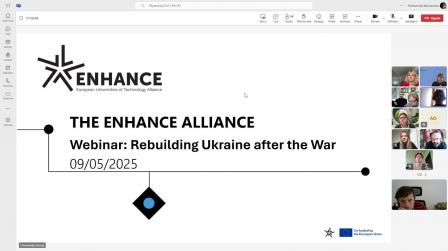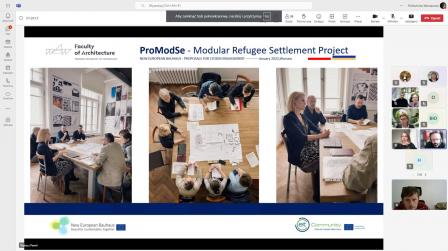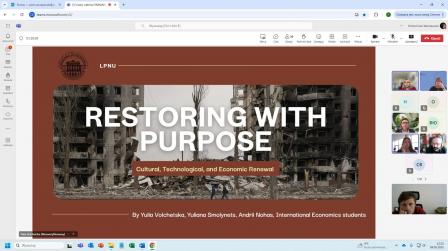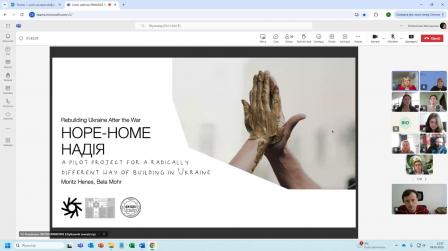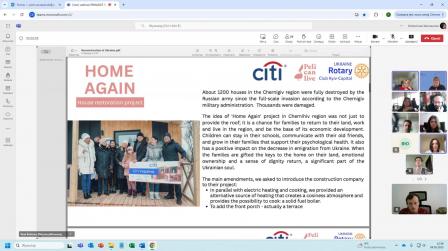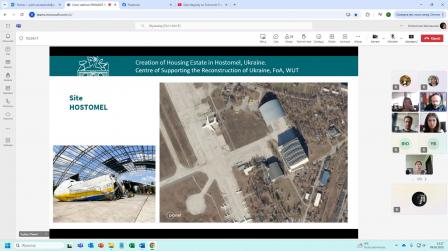Home » News » Important information »
Workshop Summary – “Rebuilding Ukraine after the War”
On May 9, 2025, as part of the ENHANCE Task Force Ukraine, the Warsaw University of Technology organised the international webinar Rebuilding Ukraine after the War. The event consisted of two panels and gathered over 30 experts and students from Poland, Ukraine, and Germany, who presented the various projects and concepts related to the reconstruction of Ukraine after the wartime destruction.
The first panel was opened by Katarzyna Zambrzycka-Papuda, PhD (Faculty of Administration and Social Sciences WUT ), Leader of ENHANCE Task Force Ukraine, and Dorota Chromińska, MA, Proxy for ENHANCE cooperation at the Foreign Language Centre of WUT and coordinator of the ENHANCE language tandems. This session focused on highlighting the initiatives supporting the rebuilding of Ukraine.
Next, Paweł Trębacz, PhD from the Faculty of Architecture at WUT presented the efforts of the WUT Architecture Team (composed of Anna Wierzbicka, the associate professor, Paweł Trębacz PhD, Renata Jóźwik PhD, and Magdalena Duda MSc) toward the reconstruction.
The Economics students from Lviv Polytechnic – Juliya Volchetska, Yuliana Smolynets, and Andrii Nohas – discussed how cultural, technological, and economic aspects intertwine in the renewal process.
Moritz Henes, PhD from the Technical University of Berlin presented the Hope Home project as an alternative vision of construction in Ukraine.
Yana Bobrova, the director of the Pelican Live charity foundation, introduced two humanitarian and ecological initiatives: Home Again and Shelterbelts of life.
Yurii Vybranets, PhD from Lviv Polytechnic, described the extensive destruction of the Saltivka district in Kharkiv.
The second panel was the practical workshop focusing on developing the functional and spatial concept for rebuilding destroyed urban areas using digital tools. It was organised and run by the same WUT team that presented during the first panel.
The event highlighted the urgent need for an interdisciplinary approach, combining architecture, engineering, economics, and social engagement in Ukraine's reconstruction process. The webinar served as the platform for sharing knowledge and fostering further international cooperation in this crucial area.
